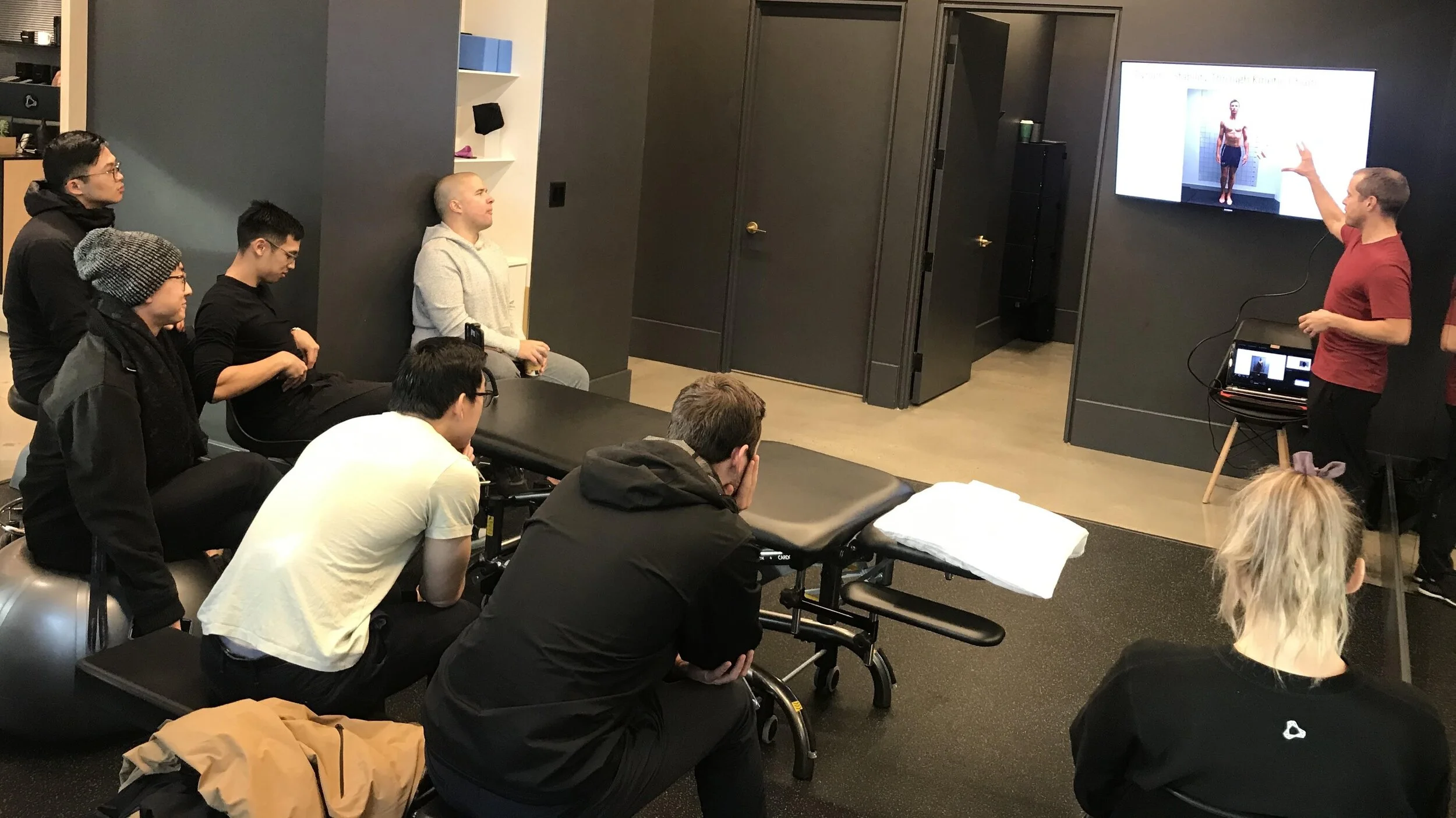Every now and then a new concept spreads like wildfire and is soon adopted at scale by organisations and professionals within a given domain. This is a scenario that seems to be especially prevalent within professional sport and the performance sciences in general. Initially early adopters are drawn in by an appealing message and a story that they find compelling. As the idea gathers steam, the growing uptake seems as much motivated by anxiety and the sense that ‘everybody else seems to be into this, so perhaps I should be too’. In due course the concept becomes firmly established and its legitimacy is widely accepted. For those caught up by this wave (or mown down by it) this all seems to occur with dizzying speed. All of this speaks to the captivating effects of ideas and the power of narratives. It also begs the question how might we avoid being taken captive and resist being swept up by the tide. Even once the wave has subsided, these events leave in their wake a detritus of zombie ideas that we as leaders, coaches and practitioners must navigate thereafter.
Honing Professional Judgement and Decision-Making
Coaching is characterised as a judgement and decision making process. Practitioners and indeed most professionals who work in human performance are de facto coaches of humans. As such, the quest that unites coaches in different sports and practitioners across disciplines is to develop our professional judgement and our ability to make better choices and decisions over time. There is no endpoint to this journey and so the need to continually hone our judgement and decision making applies irrespective of what stage we are might be at in our career. That said, the question of how we best develop these skills for practitioners at the start of their career versus catering for these aspects in continuing professional development thereafter will likely require different solutions.
Beyond the Bubble: The Utility of a Neutral Third Party
One of the problems with our natural preference for those who think as we do is the tendency to find ourselves in an echo chamber. Leaders can of course combat this by recruiting for cognitive diversity, but even within a diverse group our thinking inevitably tends to become socialised as a natural consequence of spending time in the company of the same group of people. Our colleagues will also to some degree share the same biases and are subject to the conventions that are inherent to the sport. Professional sport in particular is a bubble - at present quite literally, but even under usual circumstances. It follows that it is important that we escape the bubble periodically. A related countermeasure is to strategically enlist a neutral third party to break up the usual routine and expose team members to perspectives from outside the bubble at regular intervals. Engaging with an outsider can serve a performance staff in a number of different ways as we will explore.
Continuing Our Education
As many practitioners will testify, it is after we have completed our formal education, professional training and certification that the real learning begins. The day to day experience of solving problems with live humans is when we discover the limits of our knowledge. It is also here that we find out that the reality is quite different to what is taught in class and the version that appears in (most) textbooks. Individuals, organisations and certifying bodies alike recognise this need to continue our learning once we are working in our respective field. The terms continuing education, continuing professional development and variations thereof will be familiar to most practitioners across disciplines (sadly it is not so well established in the coaching profession). What is less clear is how we might best tackle this ongoing quest and make good choices from the growing array of options with regards to content and the modes of delivery that are available to us.
Triangulating a Position
As the value of cognitive diversity becomes more recognised, what is striking is how slow we have been to realise the need to revise our habitual ways of consuming information and interacting with those who hold contrary views. Whilst pioneers who think different are celebrated in modern western culture, in reality we are far less amenable to entertaining disagreement and diverging ideas. In the professional and academic realm we are quick to follow an authority and align with a school of thought. The hordes are likewise quick to leap into the breach to defend the doctrine against perceived challenge or dissenting views. If anything debates in all circles are increasingly polarised, as the assembled masses flock to either one side or the other. We might appreciate cognitive diversity on a conceptual level, but on a practical level we are clearly not there yet. So what steps can we take to enjoy the benefits of cognitive diversity and open our minds to the possibilities as we form our opinions?
Battling Hubris: The Perils of Success
Ascending to the top is a major accomplishment in any domain. But it could be argued that it is here that the greatest challenge begins. A number of teams have won the championship, but only a very small fraction are able to back up this success. Something about reaching the summit makes it less likely that those individuals will repeat the feat thereafter. Aside from the added motivation for opponents eager to knock the champions off their perch, the experience of success in itself serves to undermine our efforts and reduces the odds of subsequent success. With this post we take a deep dive into the paradoxical effects of success, identify what factors what should be vigilant for, and explore some potential countermeasures to increase our odds of sustaining success.
Special Post: 'The Illogic of Being Data Driven'
In the digital era there is a great onus on being ‘data driven’ across all domains. The drive to be objective and to quantify input and output is eminently understandable. The well-worn phrase that gets thrown around is ‘how can you manage something if you don’t measure it?’. We do however need to be very careful about what metrics we use as a proxy for the thing we are attempting to evaluate. There is inevitably a separation between the measure we can objectively quantify and the complex entity that it represents. We need to be very confident about the specificity and sensitivity of the particular measure in relation to what we are seeking to evaluate, to avoid false positives (detecting something that isn’t there) and false negatives (failing to detect something that is there). On a more fundamental level, complex phenomena defy simple measurement.
Marshalling the Mind Under Stress
High stakes and heightened emotions are characteristic of competitive sport, particularly at the highest level. For those who operate in elite and professional sport the presence of stress seems ubiquitous. Coaches and athletes alike regularly face high pressure scenarios where there is a great deal of expectation and much riding on the outcome. Anticipation of an important event, such as a big game, major competition, or selection trials naturally inspire a host of feelings, thoughts, and emotions, ranging from excitement to anxiety and even dread, sometimes simultaneously! In this post we explore how we can equip ourselves and help our athletes to meet the psychological and emotional challenges we will inevitably face on the journey.
Clues for Successful Youth Sports Parenting
Parents play a vital role in supporting their child to participate in youth sport. Parents are quite literally the driver, providing both the opportunity and transportation. Youth sports parenting is a full time job in itself, demanding considerable investment in terms of both money and time. It is parental support that affords kids the opportunity to participate and derive the myriad benefits associated with youth sports, which span athletic, health, scholastic, and life skill realms. Naturally, parents are invested in their child’s youth sports participation, and this investment often leads to increasing involvement. Yet despite the best intentions there are adverse consequences when parental involvement or intervention becomes excessive. In this Informed Blog post we unravel the complexity and challenges of being the parent of a youth sports athlete, and attempt to offer some clues to help guide parents to walk this fine line at different phases in the youth sports journey.













